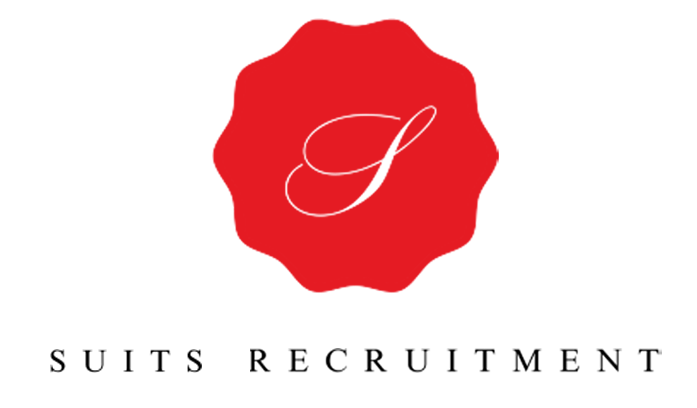









AI Recruitment Automation: Balancing Efficiency & the Human Touch in 2025
In June 2025, major UK and global firms are accelerating the adoption of AI-powered recruitment systems. For instance, Capita recently announced it will roll out an AI-driven hiring platform this summer in collaboration with Salesforce’s Agentforce AI, aiming to reduce hiring cycles from weeks to hours by automating over 200 tasks in the process. At the same time, HR technology trends continue to reshape how organizations source, assess, and engage talent. As Suits Recruitment navigates this evolving landscape, it’s crucial to understand both the opportunities and challenges of AI-driven recruitment automation, and how to maintain the essential human element.

1. Why AI Recruitment Automation Is Trending Now
- Rapid efficiency gains: Companies face pressure to fill roles faster—especially in high-volume hiring sectors like care, tech, and services. Automating tasks such as CV screening, interview scheduling, and initial assessments can dramatically shorten time-to-hire.
- Data-driven precision: AI enables analysis of large candidate pools against role requirements, surfacing top matches based on skills and experience patterns. This “precision hiring” reduces reliance on manual résumé review and helps minimize unconscious bias when properly configured.
- Candidate experience enhancement: Chatbots and virtual assistants powered by AI can provide 24/7 responses to candidate queries, update applicants on status, and guide them through next steps—boosting engagement and employer brand perception.
- Competitive necessity: Early adopters gain an edge in tight talent markets. As more organizations deploy AI tools, the bar for responsiveness and candidate experience rises.
2. Real-World Example: Capita’s AI Rollout
Capita—a major UK outsourcing provider recruiting roughly 10,000 staff annually—will deploy Salesforce’s Agentforce AI this summer to automate early hiring stages: defining job specifications, shortlisting candidates, and preliminary assessments (reuters.com). By handling these tasks, recruiters can focus on higher-value activities: conducting in-depth interviews, relationship-building with candidates, and onboarding strategy. This exemplifies how large-scale, high-volume recruiters are leaning on AI to streamline processes while preserving human-led decision-making in final stages.
3. Benefits and Efficiency Gains
- Time Savings: Automated resume screening can reduce days or weeks of manual sifting to mere hours.
- Consistent Evaluation: Well-trained AI models apply the same criteria uniformly, which can help limit inconsistent judgments across different recruiters.
- Scalability: For spikes in hiring demand—seasonal campaigns or large projects—automation absorbs volume without proportional increases in recruitment headcount.
- Enhanced Data Insights: AI analytics reveal patterns in candidate pipelines (e.g., sources yielding highest-quality hires), enabling continuous refinement of sourcing strategies.
4. Preserving the Human Touch
While automation delivers efficiency, the
human element remains essential. Over-reliance on AI can lead to candidate alienation or unintended bias if models are not carefully designed. To balance:
- Human Oversight & Review: Use AI for initial screening, but ensure recruiters review shortlisted profiles before outreach. Regularly audit AI criteria and outcome metrics to detect and correct biases.
- Personalized Communication: Combine automated updates with personalized messages from recruiters at key stages. Even a brief note acknowledging a candidate’s unique background can foster connection.
- Interview & Relationship Building: Final interviews, negotiations, and employer-brand storytelling are inherently human. Recruiters should allocate saved time toward deeper candidate engagement, coaching, and cultural fit assessments.
- Continuous Training: Upskill recruitment teams on interpreting AI outputs, understanding model limitations, and integrating insights with their industry expertise.
5. Challenges & Best Practices
- Data Quality & Model Training
- Challenge: AI outcomes depend on training data. Poor or biased historical data can perpetuate unfair screening.
- Practice: Regularly review and cleanse input datasets. Include diverse, representative examples. Engage external audits or bias-detection tools.
2. Candidate Privacy & Compliance
- Challenge: Automated processes may collect sensitive data (e.g., video interview analytics).
- Practice: Ensure compliance with data protection regulations (GDPR in the UK/EU). Be transparent with candidates about how their data is used and stored.
3. Technology Integration
- Challenge: Integrating AI tools seamlessly with existing ATS and HRIS can be complex.
- Practice: Partner with vendors experienced in end-to-end integration. Pilot new systems on a small scale before full rollout to identify workflow adjustments.
4. Change Management
- Challenge: Recruiters may fear job displacement or resist new processes.
- Practice: Communicate benefits clearly—how AI frees them from repetitive tasks so they can focus on strategic roles. Provide training sessions and involve recruiters in tool selection and feedback loops.
5. Maintaining Employer Brand Authenticity
- Challenge: Over-automation can make candidate interactions feel impersonal.
- Practice: Craft automated messages with brand-consistent tone; ensure human follow-up in critical touchpoints (e.g., offer discussions, feedback delivery).
6. Preparing Your Organisation
- Assess Readiness: Conduct an internal audit of current hiring volumes, pain points, and existing tech stack. Identify which tasks yield the greatest ROI if automated.
- Select the Right Tools: Evaluate AI solutions that align with company size and hiring complexity. Consider modular platforms allowing phased adoption (e.g., start with resume screening, then add chatbot engagement).
- Pilot & Iterate: Run a pilot on a specific department or role type. Collect metrics on time-to-hire, quality-of-hire, and candidate satisfaction. Use insights to fine-tune AI parameters and human workflows.
- Train Your Team: Provide hands-on workshops for recruiters to understand AI outputs, set guardrails, and maintain human-centric practices.
- Monitor & Optimize Continuously: Establish KPIs (e.g., reduction in screening time, candidate drop-off rates, diversity metrics) and review them regularly to ensure the AI system remains aligned with business goals.
7. What This Means for Job Seekers
- Be ATS- and AI-Friendly: Use clear formatting, relevant keywords, and concise profiles. Understand that AI may filter initial applications—tailoring resumes to each role remains crucial.
- Leverage AI Tools for Self-Preparation: Many platforms offer AI-driven interview practice, resume builders, or job-match recommendations. Use these to strengthen your candidacy.
- Showcase Soft Skills: As AI handles technical screening, human interviews focus more on culture fit, communication, and problem-solving. Prepare to demonstrate these in virtual or in-person interviews.
- Stay Informed: Follow industry updates on AI in recruitment, so you can anticipate changes in application processes and adjust your approach accordingly.
8. The Future Outlook
AI recruitment automation will continue to advance rapidly. However, organizations that excel will be those that integrate AI thoughtfully, preserving human judgment and empathy. As more UK firms like Capita adopt sophisticated AI tools, the competitive advantage lies not just in technology, but in how recruiters leverage freed-up capacity for strategic talent engagement.
Suits Recruitment remains at the forefront of these developments. We combine human expertise with cutting-edge recruitment technology to deliver efficient, fair, and engaging hiring experiences for our clients and candidates alike.
Call to Action
📢 How is your organization approaching AI in recruitment? Share your experiences or questions in the comments below!
🔗 Looking to modernize your hiring process or prepare for AI-driven recruitment? Contact Suits Recruitment for expert guidance and solutions: www.suitsrecruitment.com
#AIRecruitment #HRTech #HiringTrends #FutureOfWork #SuitsRecruitment
Citations
- Capita’s AI-powered recruitment rollout: (reuters.com)
- HR Tech Trends reshaping industries (June 11, 2025): (tech-critter.com)
By: Joy Khaylin Ugokwe










